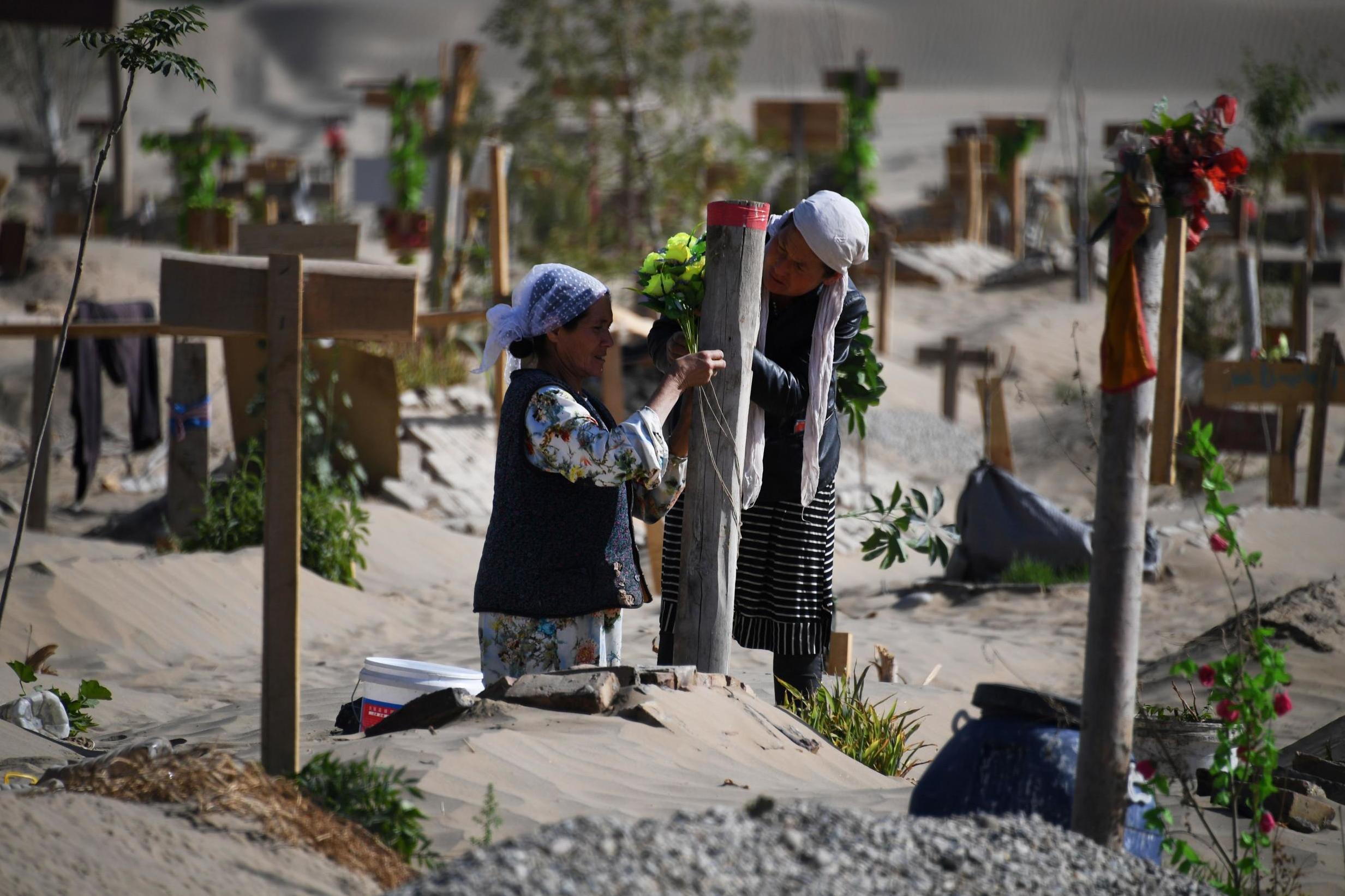Uighur Muslims are being tortured and imprisoned. We cannot stay silent when the stakes are so high
We now have overwhelming proof that we are witnessing the largest mass-internment of an ethnic group since the atrocities of the 1940s, says Yasmin Qureshi


For several years, Uighur Muslims living abroad have tried to alert the world to repression and human rights abuses committed by the Chinese government. Now their voices are too loud to ignore. We have all seen the footage of long rows of Uighurs blindfolded and on their knees on a train platform. When history remembers the world’s response, we will not be able to claim ignorance.
Last year myself and colleague Alistair Carmichael MP formed a cross-party group in response to the growing evidence of human rights violations emerging from Xinjiang, a vast province in the north-west of China. Now, there is at last, cross-party engagement from every corner of parliament. Different views on how to proceed are to be expected – there will naturally be disagreements along the way on exactly what path we should take. What we need now is a broad consensus that we are facing something new – perhaps in our lifetimes, unprecedented.
Adrian Zenz, whose work has been at the forefront of documenting the details of this crime against humanity, estimates that as many as 1.8 million people have been forcibly detained. A growing body of research has found a huge decline in pregnancies among ethnic minorities in Xinjiang, numerous accounts of horrific sexual violence and a visible and growing surveillance network which monitors and tracks every action taken by the Uighur community.
Whether we have enough evidence to describe this as a genocide is a subject of important academic and legal debate. But in the rush to determine precisely what is happening, what laws or conventions are being violated, and exactly how many people are being detained, we can lose sight of some simple facts. Staggering numbers of people are being deprived of the most basic freedoms for no reason other than their faith. Families are being forced apart and birth rates are being forced down. Human rights abuses are being enacted by a state on an industrial scale.
We now have overwhelming proof that we are witnessing the largest mass-internment of an ethnic group since the atrocities of the 1940s. Suspecting links to the use of forced labour in Xinjiang, the United States Customs and Border Protection officers detained a shipment of hair products which included almost 13 tons of wigs made from human hair. To anyone with knowledge of the most terrible moments of the 20th century, this has a deeply disturbing resonance.
There is also evidence emerging that forced labour – in other words, slavery – is taking an increasingly central role in China’s economy. In March, the Australian Strategic Policy Institute estimated that at least 80,000 Uighurs were transferred out of Xinjiang and assigned to factories in a range of supply chains including electronics, textiles, and automotive. We also know that the Xinjiang provincial government has a target of employing 1 million workers in its textile industry by 2023, a number many believe impossible without coercion. This has implications for all of us because high-street brands use supply chains which now almost certainly involve forced labour.
There is often a defeatist argument that says there is nothing we can do, and China is too powerful to disagree with. Certainly, we have to remain on strong diplomatic terms as their economy, population and international influence all continue to grow. But we cannot stay silent when the stakes are so high.
Last week the Bar Human Rights Committee produced an excellent briefing paper exploring the mechanisms available to us. Magnitsky-style sanctions can be leveraged against officials involved in these crimes. Although the government has placed sanctions on several Saudi and Russian nationals, Chinese officials are conspicuous in their absence.
We can also do more to pressure companies whose supply chains move through Xinjiang. 20 per cent of the world’s cotton comes from the Uighur region. Tracking where companies source materials is notoriously difficult but a coalition of human rights organisations working to end exploitation in the area have stated that “virtually the entire apparels industry is tainted by forced Uighur and Turkic Muslim labour”. This makes us all complicit unless we act.
The atrocities being committed in China show the urgent need to update our entire approach to modern slavery so that buyers can confidently assume that goods they purchase from high street brands were not made using forced labour.
This month marked 25 years since the Srebrenica massacre in Bosnia, when thousands of Muslim boys and men were slaughtered by ethno-nationalists. Each year, we commit to preventing such terrible tragedies. Those commitments mean little unless we open our eyes to the horrors inflicted on ethnic minorities in China and push our government to use every lever available to compel China to end its persecution of the Uighurs.
Yasmin Qureshi MP is a co-chair of the All-Party Parliamentary Group on Uighurs.
Join our commenting forum
Join thought-provoking conversations, follow other Independent readers and see their replies
0Comments